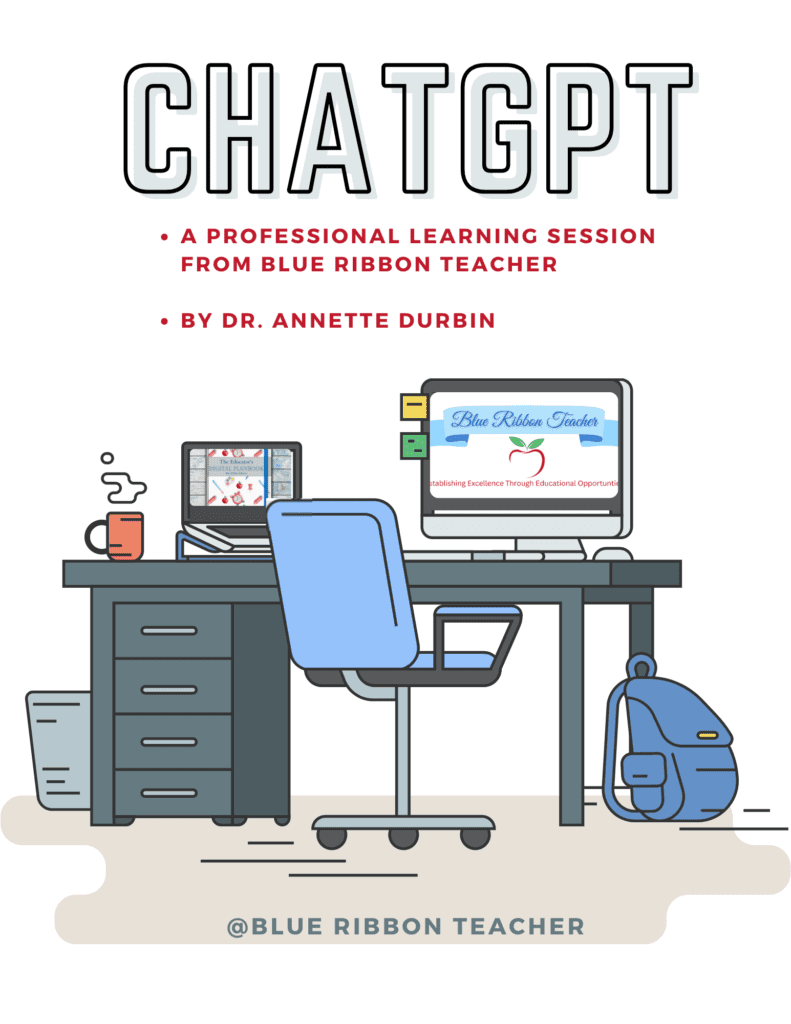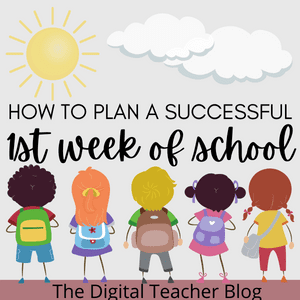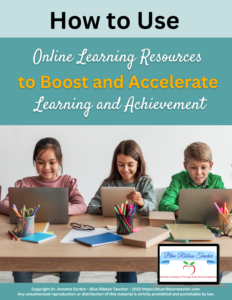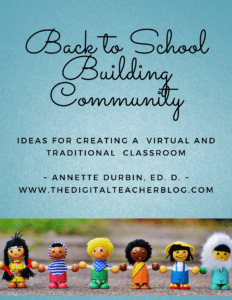Have you heard the buzz? You may have heard of several terms, ChatGPT, Artificial Intelligence, and OpenAI, recently in educational journals, websites, or even in your classroom conversations.

In this post, I’ll be discussing ChatGPT, an innovative tool that’s revolutionizing the world of education. ChatGPT is an AI language model trained on the GPT-3.5 architecture, which allows it to understand and respond to natural language in a way that mimics human conversation.
Before we get started, let’s make sure we understand these three terms: ChatGPT, Artificial Intelligence, and OpenAI.
ChatGPT: What is it?
ChatGPT is an AI language model based on the GPT (Generative Pretrained Transformer) architecture, developed by OpenAI. ChatGPT is designed to understand natural language and generate human-like responses to text-based queries.
ChatGPT is just one of the many innovative projects that OpenAI is working on. Don’t worry, we’ll learn more about OpenAI later. By training the model on the massive amount of data available on the internet, ChatGPT is able to generate responses that are accurate and relevant to a wide range of questions. This technology has tremendous potential in many fields, including education, research, and customer service.
You should also know that ChatGPT is capable of generating text that resembles natural human conversation and can be used for a variety of tasks such as language translation, answering questions, and even generating creative writing. It has been trained on vast amounts of text data and has learned to recognize patterns and relationships in language, allowing it to generate coherent and contextually relevant responses.
However, the system has been trained on data to about the year 2021. Therefore, the responses generated may not be accurate for information in 2022 and 2023. You may be familiar with ChatGPT being used in a wide range of applications, including customer service chatbots, language learning tools, and virtual assistants.
Artificial Intelligence: What is it?
Artificial intelligence (AI) is a branch of computer science that focuses on the development of computer systems that can perform tasks that typically require human intelligence, such as understanding natural language, recognizing images, making decisions, and solving problems.
You should also know that AI systems use algorithms and statistical models to analyze and learn from data, enabling them to make predictions or take actions based on patterns and insights found in the data.

AI technology includes machine learning, deep learning, natural language processing, robotics, and computer vision. AI applications are found in a wide range of fields, including healthcare, finance, transportation, manufacturing, and entertainment. The goal of AI is to create intelligent machines that can augment or replace human capabilities in various domains and improve efficiency, accuracy, and decision-making.
Artificial intelligence is revolutionizing the way we interact with technology, and one of the most exciting developments in this field is ChatGPT, an AI language model created by OpenAI. ChatGPT is a state-of-the-art machine learning model that can understand and respond to natural language, much like a human would.
OpenAI: What is it?
OpenAI is an artificial intelligence research laboratory consisting of a for-profit company and a non-profit organization. It was founded in 2015 by a group of leading technology executives and researchers with the goal of advancing AI in a safe and beneficial way for humanity.
You should know that OpenAI has also developed several notable AI applications, including the GPT language model series. The organization has partnerships with various technology companies and academic institutions to advance AI research and ensure its responsible and beneficial development.
OpenAI is committed to creating AI systems that can help solve some of the world’s biggest challenges, such as climate change, healthcare, and education.

ChatGPT Limitations
However, like any tool, ChatGPT has its pros and cons. On the one hand, it can help streamline research and make learning more accessible. On the other hand, it may not always provide accurate or complete information, and there is a risk of over-reliance on the tool at the expense of critical thinking and analysis.
While ChatGPT has several benefits, it also has some limitations, including:
- Lack of emotional intelligence: ChatGPT does not have emotions or the ability to read emotions in users, which can limit its ability to provide empathetic or personalized responses.
- Limited domain knowledge: While ChatGPT has access to vast amounts of information, its knowledge is limited to what has been fed into it. It may not be able to provide accurate or relevant responses to complex or niche topics.
- Lack of context: ChatGPT does not have contextual understanding, which means it may misinterpret questions or provide inappropriate responses in certain situations.
- Language barriers: While ChatGPT can communicate in multiple languages, it may still struggle with nuances or slang, leading to misinterpretations or inaccurate responses.
- Bias: ChatGPT may reflect biases present in the data it was trained on, leading to potentially discriminatory or offensive responses.
- Security and privacy concerns: The use of ChatGPT may raise security and privacy concerns, particularly in sensitive industries such as healthcare or finance.
Overall, while ChatGPT can be a useful tool, it is important to consider its limitations and potential drawbacks when deciding whether to use it.

Are you looking for tips and best practices to use ChatGPT in your classroom?
I created this FREE resource to support you in your journey to effectively use this technology
with your students. Click on the button to download your FREE resource today!
ChatGPT Benefits
One of the biggest advantages of ChatGPT is its ability to provide instant answers to a wide range of questions. Whether you’re a student, teacher, or researcher, ChatGPT can quickly provide the information you need to help you make informed decisions and solve problems.
As an AI language model, ChatGPT has additional benefits, including:
- Lack of emotional intelligence: ChatGPT does not have emotions or the ability to read emotions in users, which can limit its ability to provide empathetic or personalized responses.
- 24/7 availability: ChatGPT can operate around the clock, providing immediate assistance and responses to users at any time of the day.
- Multilingual support: ChatGPT can communicate in multiple languages, making it a useful tool for international organizations or individuals who speak different languages.
- Scalability: ChatGPT can handle a large number of users simultaneously, making it suitable for businesses and organizations with a large customer base.
- Cost-effective: ChatGPT is cost-effective, as it does not require a physical presence or a dedicated support team, making it an attractive solution for small businesses or startups.
- Improved customer satisfaction: ChatGPT can provide quick, accurate, and personalized responses, which can lead to increased customer satisfaction and loyalty.
Overall, using ChatGPT can lead to improved efficiency, productivity, and customer satisfaction, making it a valuable tool for businesses and individuals alike.
ChatGPT Video: Professional Learning Session
In this video, I’ll go into more detail and explore the benefits and limitations of using ChatGPT in education, as well as how to use it effectively to enhance your learning and research. So, whether you’re a student looking to improve your grades or a teacher seeking new tools to engage your students, this video is for you. Let’s get started!
ChatGPT in Education
In education, ChatGPT can provide students with instant answers to their questions, helping them to better understand complex topics and improve their grades. Researchers can also use ChatGPT to quickly find information on a variety of subjects, saving time and resources. In customer service, ChatGPT can provide efficient and effective responses to customer inquiries, reducing wait times and increasing satisfaction.
However, as with any technology, there are also concerns about the potential drawbacks of ChatGPT and AI in general. Some worry that reliance on AI could lead to job losses and a loss of critical thinking skills. There are also concerns about the ethics of AI and the potential for biases to be built into these systems.
Despite these concerns, the potential benefits of ChatGPT and AI are enormous. By continuing to develop and refine these technologies in a responsible way, organizations like OpenAI can help to create a better future for us all. As the field of AI continues to evolve, it will be exciting to see how ChatGPT and other AI models are used to solve some of our biggest challenges.
Related Resources
There are a variety of education journal and articles outlining how to use ChatGPT in education. Check out some of these publications.
Six Ways to Use ChatGPT to Save Time
Ideas to Use ChatGPT in Middle and High Schools
Using AI to Help Organize Lessons
Making New Tech Tools Work for Your Classroom
Final Thoughts
Artificial intelligence is transforming the way we live, work, and interact with the world around us. From self-driving cars to voice assistants like Siri and Alexa, AI is becoming an increasingly integrated part of our daily lives. One of the most exciting developments in this field is ChatGPT, an AI language model created by OpenAI. ChatGPT is a cutting-edge machine learning model that can understand and respond to natural language in a way that mimics human conversation. With its ability to provide instant answers to a wide range of questions, ChatGPT has the potential to transform many areas of our lives, from education and research to customer service and beyond.



